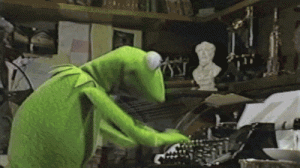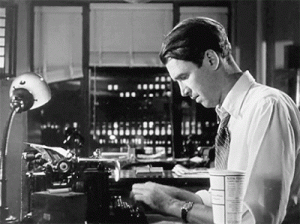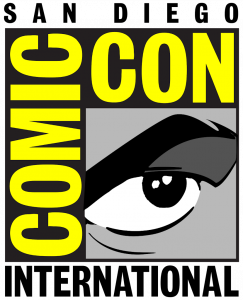Pop culture pun. I don’t do puns, normally, but it works. As you’ll see.
This is mostly going to be for screenwriters. Writers of prose—please don’t feel left out. There’s a couple of things in here for you, too.
Tis the season for screenplay contests. A few of the big names have opened their mailboxes for submissions, and there’s a dozen more noteworthy ones past that. It’s a great way to get your name out there and even win some decent money, too, if you plan accordingly.
However…
As some long-time readers know, I used to read for a couple of screenplay contests (four different ones, in fact). I have several friends who read for some of the same ones, and some others, too. This time of year used to be a time of great sadness for us. And also a time of great drinking. Usually for the same reasons.
 For an average contest, I’d probably read about a hundred scripts per year. That means there were years I’d read over three hundred scripts, usually all in the space of three or four months. It was a fascinating (and sometimes horrifying) overview of amateur screenwriting. To be honest, it’s one of the big things that convinced me to start the ranty blog.
For an average contest, I’d probably read about a hundred scripts per year. That means there were years I’d read over three hundred scripts, usually all in the space of three or four months. It was a fascinating (and sometimes horrifying) overview of amateur screenwriting. To be honest, it’s one of the big things that convinced me to start the ranty blog.
It also gave me a real sense of certain patterns. There were certain types of scripts that would show up again and again and again. And it got to the point that I (and most of my friends) would let out a groan—an Ecchh, if you will—when we opened the next script and realized it was another one of those stories. Usually we could tell within the first few pages. In rare cases, the story would go along fine for twenty or thirty pages and the big first act reveal was… it’s just another one of those stories.
I drank a lot during this period of my life.
Now, I’m not saying any of these are automatically bad scripts that no one would ever pay a dime for. We could probably check IMDb box office listings right now and find examples of more than half of them. But contests aren’t about the box office, they’re about the submissions pool. Unless it’s something truly, utterly spectacular, each of these all-too-common screenplays is going to get an automatic response from a contest reader. An Ecchh. And that means my script is already starting in the negative. And even if the reader’s just subconsciously knocking off two or three points for being an Ecchh-inducing script, those points could mean the difference between making it to the next round or winning a contest.
So, a few types of screenplays you should think twice about before submitting. I’ve mentioned some of these before, so if they sound familiar… well, I thought it was worth repeating.
The 50% Script
I’ve mentioned this idea here a few times. In any pool of submitted material, around half of the submissions can be usually be disqualified by page three. It’s when I submit my stoner sex comedy to a Christian values screenplay contest. Or my romantic comedy to a horror contest. Or my five-act play to… well, any screenwriting contest. The same goes for short stories. Very few screenplay contests want to see short stories. Hard to believe, I know, but there it is.
The 50% scripts are also the result of me being incompetent and/or lazy. If I don’t know how to spell, have only the faintest understanding of grammar, and no concept of story structure… that’s a 50% script. Or if I send in a first draft with all its flat characters and wooden dialogue. Or if I don’t even bother to learn how to format a screenplay. Or if I wrote my screenplay under the assumption I’d be directing it from this draft.
If my script falls in that 50% group, the reader’s going to know very soon. And they’re going to Ecchh because a lot of contests require them to read the whole script… even if they know it’s not going to win. Most readers will toss a 50% script as soon as they can. Sometimes sooner, if they think they can get away with it.
The Writer Script
I’ve said this a dozen or so times. Do not write about writers. I did the math one year as a reader and it turned out almost 15% of the scripts I read had a writer as one of the main characters (yeah, I started keeping track of this stuff). When I was interviewing contest directors for Creative Screenwriting, one joked that if her contest banned scripts about writers they’d probably lose a quarter of their entries. More than a few professional editors have said they’ll toss a book manuscript if it opens with someone writing on their computer.
No one cares about the day-to-day struggles I go through as a writer. No one. Most of you don’t—you’re here to learn about the successes. Definitely not a bunch of script readers, many of whom are writers themselves. If I’m being sincere, I’m going to bore everyone (more on that in a bit). If I make up some idealized writing lifestyle, the readers will Ecchh over that because now I’m delving into fantasy.
Let’s assume they didn’t toss my script aside as soon as they saw the writer character. If they get to the end and said writer-character finally sells their book or screenplay and wins the Pulitzer/ Oscar/ whatever… the reader will crumple my script into a ball and burn it so nobody else will have to read the damned thing. Then they will get my personal information from the contest director, hunt me down, and cram the ashes in my mouth.
And I probably won’t advance in the contest.
The Current Events Script
I’m going to go out on a limb here. If we could look at the pool of Nicholl submissions for this year, I’d bet we’d see a fair number of Olympic scripts. Several of them would be about stray dogs in Sochi. Also a bunch of screenplays that tie somehow to health care laws. A few on government gridlock, too. And most of them were probably written in four weeks or less.
Y’see, Timmy, if I saw a news report about some fascinating nuance of the world and realized it’d make a great script… it’s a safe bet at least a thousand other aspiring screenwriters saw the same news story and had the same idea. Probably more with the way stories spread on the internet. Even if only half of those writers do anything with the idea, and even if only ten percent of those people are sending their script to the same contest as me… that’s still fifty people rushing out scripts about the exact same thing I am. Even if half of them are completely incompetent and the other half are just barely on par, it means the contest reader is going to be reading a dozen scripts just like mine. Ecchh. And that’s if we stick to a thousand as our base number.
Mine may be the best in the batch, of course, but it’s going to lose a lot of appeal because now it’s a tired, overdone idea. And none of us want to be thought of as the best take on a tired, overdone idea.
The Actor Script
When people are trying to be positive about this one, they’ll call it “a character script.” It means my screenplay is just a thin plot with a handful of over-detailed character sketches piled up in it. There’s usually lots of deep and meaningful multi-page conversations about mundane things, often held in a few basic locations, and very little action. Of any sort.
The thing is though, is there anything remotely interesting about a story that’s indistinguishable from the boring, everyday life we all lead? Is there anything impressive about me putting all that boring stuff down on paper? Is there any sort of challenge there, for me as a writer or you as a reader?
Ecchh.
As it happens, this leads nicely into…
The True Script
A kissing cousin of the character script is the true script. On the cover or either the first or last page (sometimes several of these) I assure the reader this tale is based on true events involving me/ my parents/ my best friend/ someone I read about in a magazine article. These true events are often stressed to give a certain validity to what the reader is about to take in. After all, they can’t call my story or characters or dialogue unbelievable if it really happened, right?
Thing is, no one cares if my story is true or not. Nobody. Ecchh. They just care that it’s a good story and it’s well-told. So my tale of prepubescent paraplegic drug addicts in 1990s Los Angeles needs to be as enjoyable—on some level—as a story about Neanderthal superheroes battling prehistoric lizard men in 1990s Los Angeles. Whether or not one of them’s a true story is irrelevant. In the end, I’m telling a story, and it’s either going to be good or it isn’t. Reality doesn’t enter into the equation for the reader, so it can’t for me.

The Formula Rom-Com
The man pursuing his dream girl realizes his best friend has been his real dream girl all along. A woman’s engaged to a condescending, controlling executive and then meets a poor artist and discovers he’s the real love of her life. Aphrodite/ Cupid/ an angel comes down to Earth on an assignment and falls in love.
Do any of these sound familiar? They should. Pretty much every one of them has been made into a dozen movies and a few thousand screenplays. Yeah, flipping the genders doesn’t make them any more original, sorry. Once it’s clear on page three this is a rom-com… Ecchh.
My romantic comedy has to be really spectacular and original to impress a reader. Again, it’s that sheer numbers thing. In four years of contest reading—a hundred romcoms, easy—I read one that stood out. Just one.
The Holiday Script
If you add in straight-to-DVD, movies of the week, and pretty much everything Shane Black‘s done, there’s a good argument to be made that holiday films are one of the best selling genres out there. However, just because my script is very sellable does not mean my script is very good. Or original. And if my contest is looking for good (see above), well…
The trick is to come up with something a contest reader hasn’t already seen again and again, to the point that they go Ecchh as soon as they see the mention of Halloween decorations. And—speaking from experience—they’ve seen most of it. They’ve Santa Claus quit, get fired, and get replaced by a temp, an elf, Mrs. Clause, his son, his daughter, his evil twin, his evil other personality, a robot, an alien, another holiday figure, another supernatural figure, Jesus. It’s all been done. The Easter Bunny has learned the true meaning of Easter, Cupid has learned the true meaning of love (see above… again), and Gobbles the Turkey has learned the true meaning of Thanksgiving. The hard way. Many, many times and in many, many ways.
There you are. Seven very common types of scripts that will make a contest reader Ecchh. Probably more like eight or nine if you read between the lines a bit.
Again, I’m not saying I could never, ever win with one of these scripts. But I am saying that if I’m going to go this path I absolutely must knock it out of the park. No questions, no conditions, no exceptions.
Speaking of movies, next week I’d like to talk about the lessons we can all learn from that fine classic film Satan Met A Lady and its slightly more well-known remake, The Maltese Falcon.
Until then, go write.












